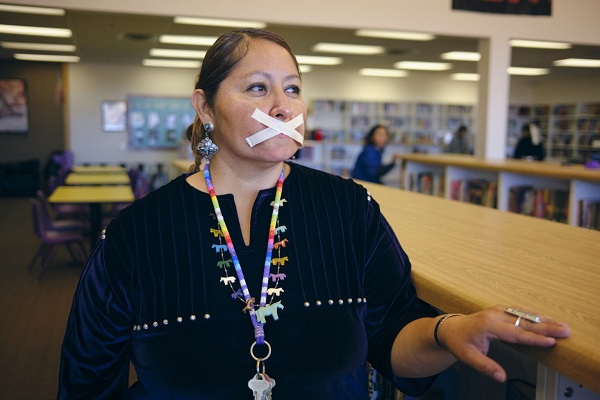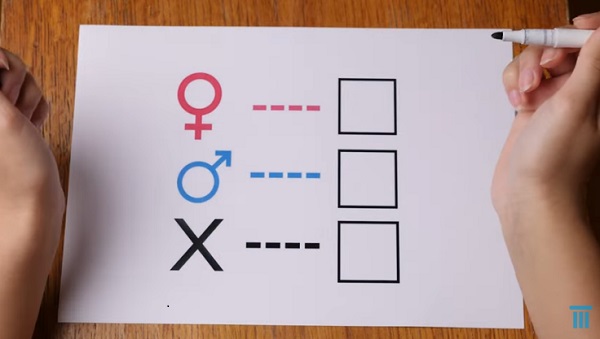Aristotle Foundation
Criminalizing residential school ‘denialism’ would silence indigenous voices, too


By Mark Milke
The effort by MP Leah Gazan to criminalize residential school views she labels “denialist” is a mistake. Gazan’s Bill C-413, if passed, would criminalize any statement that might be interpreted as “condoning, denying, downplaying or justifying the Indian residential school system in Canada through statements communicated other than in private conversation.”
Let’s start with examples of whose speech Gazan’s bill would criminalize, if repeated in the future: indigenous Canadians who have publicly “condoned,” or at least partly justified, residential schools.
In 1998, Rita Galloway, a teacher who grew up on the Pelican Lake First Nation in Saskatchewan and then-president of the First Nations Accountability Coalition, was interviewed about residential schools. She noted that she had “many friends and relatives who attended residential schools,” and argued, “Of course there were good and bad elements, but overall, their experiences were positive.”
In 2008, the late Richard Wagamese, an Ojibwe author and journalist, wrote in the Calgary Herald about the many abuses that took place at residential schools. He then straightforwardly argued that positive stories needed to be told, too, including his mother’s.
After praising her neat, clean home and cultured lawn on a reserve outside Kenora, Ont., Wagamese noted how his 75-year-old mother “credits the residential school experience with teaching her domestic skills.” Critically, “My mother has never spoken to me of abuse or any catastrophic experience at the school.”
Wagamese argued the then-forthcoming Truth and Reconciliation Commission (TRC) “needs to hear those kinds of stories, too,” and that telling “the good along with the bad” will “create a more balanced future for all of us.”
That’s not because such schools were perfect — or even optimal. As has been extensively documented, physical and sexual abuses occurred in some schools, and that is something that no one should downplay.
But it’s too easy to forget the limited choices that existed for 19th- and early 20th-century Canadians. As we do today, most people back then believed in the value of universal education. Many Canadians, indigenous and non-indigenous, lived in poverty, had rudimentary transportation links, limited job opportunities and thus limited possibilities for day schools in remote areas, such as reserves.
Imagine the outcry today if earlier generations of parishioners, parents (including Indigenous parents) and politicians mostly ignored remote reserves and failed to provide indigenous communities with educational opportunities. The same voices today who accept no nuance on residential schools would likely excoriate that choice to deny education to Indigenous children.
The choices in the 19th and 20th centuries were not between perfection and its opposite; they represent a trade-off between suboptimal choices. Understanding this requires nuance, which is in short supply these days.
As an example, consider the perspective of Manitoba school trustee Paul Coffey, a Metis man who made a presentation to the Mountain View School Division board meeting in Dauphin, Man., about racism in April and was pilloried for it. His remarks included comments about residential schools. Coffey tried to argue that residential schools had good and bad aspects, but he was roundly criticized for his views.
In a July interview, Coffey again offered nuance about the schools, noting what much of the media missed in their initial firestorm coverage: “I said they were nice. I then also said they weren’t. I said treaties were nice and then they weren’t. I said even TRC is a good idea, until it isn’t.”
Criminalizing these stories and opinions would mean that these three indigenous voices, and many others, could face fines or jail time. This is precisely why speech, unless urging violence, should never be criminalized.
Another reason not to criminalize speech is because it makes it even more difficult to correct bad ideas and lingering injustices. An open society requires open discourse. It’s the only way errors can only be corrected. That disappears if one becomes subject to fines and imprisonment for thinking out loud, including when one is ultimately proved to be in error.
Gazan’s bill is the latest attempt by Canadian politicians to suppress views and conclusions with which they disagree. That suppression is illiberal and unhelpful. Mandating a single point of view damages the accumulation of knowledge that’s necessary for progress, prevents a useful dissection of why abuses occurred in residential schools and will prevent the open discrediting of wrongheaded positions.
No one person will be right every time. Open, public debate is critical to exposing errors and advancing human progress.
Mark Milke is the president of the Aristotle Foundation for Public Policy.
Aristotle Foundation
Canada has the world’s MOST relaxed gender policy for minors

Are Canada and the United States out-of-step on gender policy for minors?
READ the new study by the Aristotle Foundation and Do No Harm: https://aristotlefoundation.org/study…
|
Alberta
On gender, Alberta is following the science

Despite falling into disrepute in recent years, “follow the science” remains our best shot at getting at the truth of the physical sciences.
But science, if we are to place our trust in it, must be properly defined and understood; it is at its essence an ever-changing process, a relentless pursuit of truth that is never “settled,” and one that is unafraid to discard old hypotheses in the face of new evidence.
And it is in this light—in the unforgiving glare of honest science—that Alberta Premier Danielle Smith’s three new legislative initiatives around gender policy are properly understood, notwithstanding the opprobrium they’ve attracted from critics.
Bill 26, the Health Statutes Amendment Act, proposes to prohibit the prescription of puberty blockers and cross-gender hormones for the treatment of gender dysphoria to youth aged 15 and under. It would allow minors aged 16 and 17 to begin puberty blockers and hormone therapies for gender “reassignment” and “affirmation” purposes only with parental, physician, and psychologist approval. The bill also prohibits health professionals from performing sex reassignment surgeries on minors.
Bill 27, the Education Amendment Act, seeks to enshrine parents’ rights to be notified if their kids change their names/pronouns at school, and it gives parents the right to “opt in” to what sort of gender and sex education their kids are exposed to in school.
And Bill 29, the Fairness and Safety in Sports Act, is designed to protect females in sports by ensuring that women and girls can compete in biological female-only divisions, while supporting the formation of co-ed opportunities to support transgender athletes.
Each of these initiatives is entirely reasonable, given what we know of the science underpinning “gender care,” and of the undeniable advantages that a male physique confers upon biological males competing in sports.
The notion that the trifecta of puberty blockers, cross-gender hormones, and revisionist surgery is a pathway to good health was a hypothesis initially devised by Dutch researchers, who were looking to ease the discomfort of transgender adults struggling with incongruence between their physical appearance and their gender identities. As a hypothesis, it was perhaps reasonable.
But as the UK’s Cass Review exposed in withering detail last spring, its premises were wholly unsupported by evidence, and its implementation has caused grievous harm for youth. As Finnish psychiatrist Riittakerttu Kaltiala, one of the architects of that country’s gender program, put it last year, “Gender affirming care is dangerous. I know, because I helped pioneer it.”
It’s no accident, then, that numerous European jurisdictions have pulled back from the “gender affirming care” pathway for youth, such as Sweden, Finland, Belgium, the Netherlands, and the United Kingdom.
It makes perfect sense that Canadians should be cautious as well, and that parents should be apprised if their children are being exposed to these theories at school and informed if their kids are caught up in their premises.
Yet the Canadian medical establishment has remained curiously intransigent on this issue, continuing to insist that the drug-and-surgery-based gender-affirming care model is rooted in evidence.
Premier Smith was asked by a reporter last month whether decisions on these matters aren’t best left to discussions between doctors and their patients; to which she replied:
“I would say doctors aren’t always right.”
Which is rather an understatement, as anyone familiar with the opioid drug crisis can attest, or as anyone acquainted with the darker corners of medical history knows: the frontal lobotomy saga, the thalidomide catastrophe, and the “recovered memories of sexual abuse” scandal are just a few examples of where doctors didn’t “get it right.”
As physicians, we advocate strongly for self-regulation and for the principle that medical decisions are private matters between physicians and patients. But self-regulation isn’t infallible, and when it fails it can be very much in the interests of the public—and especially of patients—for others to intervene, whether they be journalists, lawyers, or political leaders.
The trans discussion shouldn’t be a partisan issue, although it certainly has become one in Canada. It’s worth noting that Britain’s freshly elected Labour Party chose to carry on with the cautious approach adopted by the preceding administration in light of the Cass Review.
Premier Smith’s new polices are eminently sensible and in line with the stance taken by our European colleagues. None of her initiatives are “anti-trans.” Instead, they are pro-child, pro-women, and pro-athlete, and it’s difficult to see how anyone can quibble with that.
Dr. J. Edward Les, MD, is a pediatrician in Calgary, senior fellow at the Aristotle Foundation for Public Policy, and co-author of Teenagers, Children, and Gender Transition Policy: A Comparison of Transgender Medical Policy for Minors in Canada, the United States, and Europe.
-

 2025 Federal Election1 day ago
2025 Federal Election1 day agoOttawa Confirms China interfering with 2025 federal election: Beijing Seeks to Block Joe Tay’s Election
-

 Energy2 days ago
Energy2 days agoIndigenous-led Projects Hold Key To Canada’s Energy Future
-

 2025 Federal Election1 day ago
2025 Federal Election1 day agoHow Canada’s Mainstream Media Lost the Public Trust
-

 Energy2 days ago
Energy2 days agoMany Canadians—and many Albertans—live in energy poverty
-

 2025 Federal Election18 hours ago
2025 Federal Election18 hours agoBREAKING: THE FEDERAL BRIEF THAT SHOULD SINK CARNEY
-

 Business2 days ago
Business2 days agoCanada Urgently Needs A Watchdog For Government Waste
-

 2025 Federal Election1 day ago
2025 Federal Election1 day agoReal Homes vs. Modular Shoeboxes: The Housing Battle Between Poilievre and Carney
-

 International2 days ago
International2 days agoPope Francis has died aged 88






